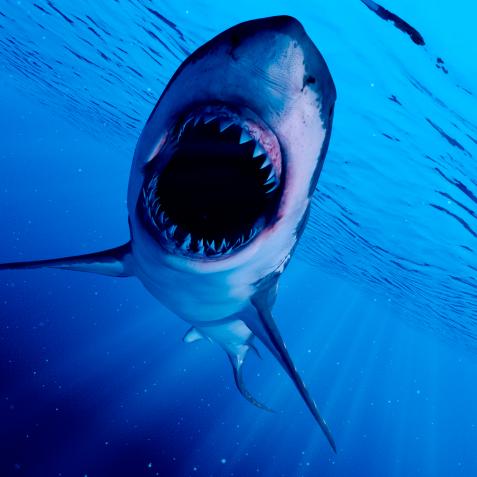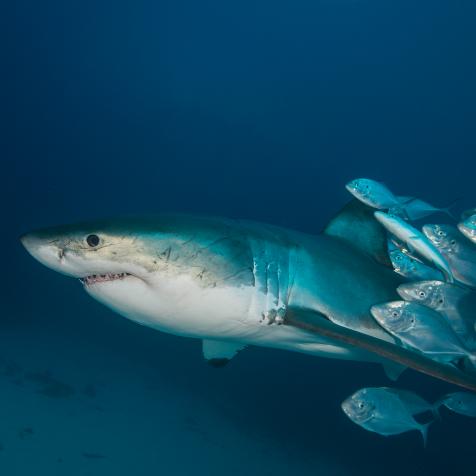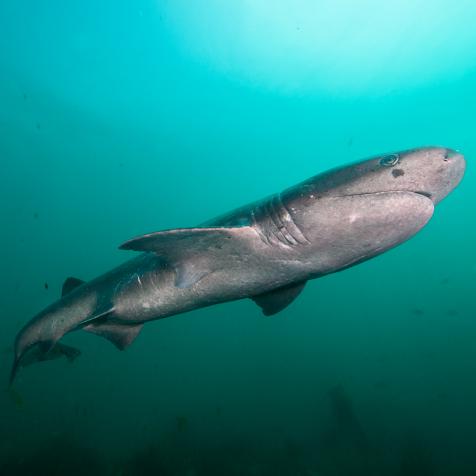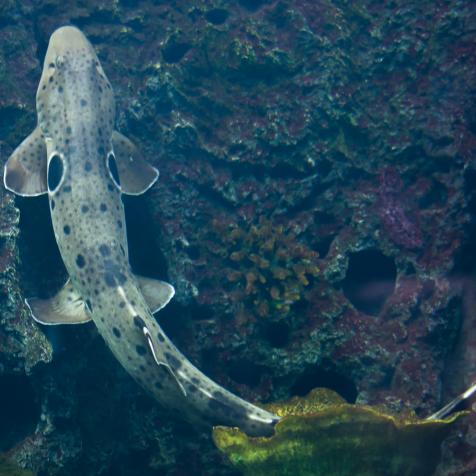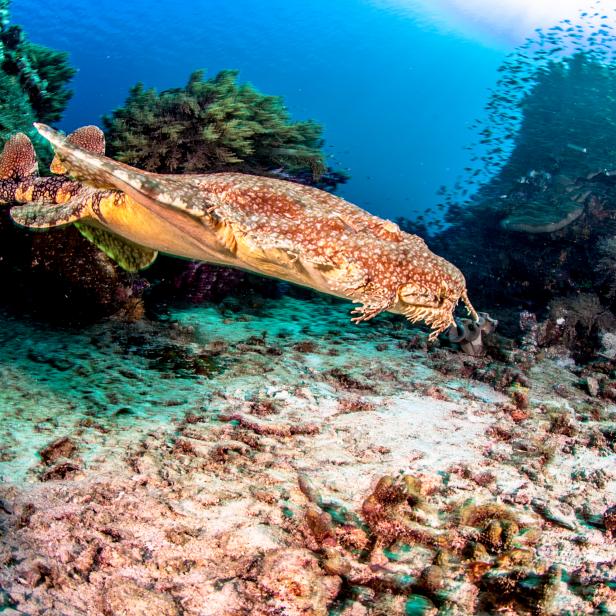
Giordano Cipriani
No, This Weird Shark Species is Not a Spongebob Character
Is it a lumpy carpet? A steamrolled toad? A character from Spongebob Squarepants? Nope, it’s the tasseled wobbegong shark.
This tasseled specimen is actually one of 12 species of wobbegong sharks, a name deriving from the Australian Aboriginal language meaning “shaggy beard”. The sharks are known as “carpet sharks” due to the ornate, symmetrical patterns on their bodies and multitude of colors.
Up until fairly recently, scientists found it impossible to differentiate between a small wobbegong species and a juvenile of a larger species, but thanks to DNA sequencing and other new technologies, they were able to identify 12 species, including the floral banded wobbegong and the dwarf spotted wobbegong.
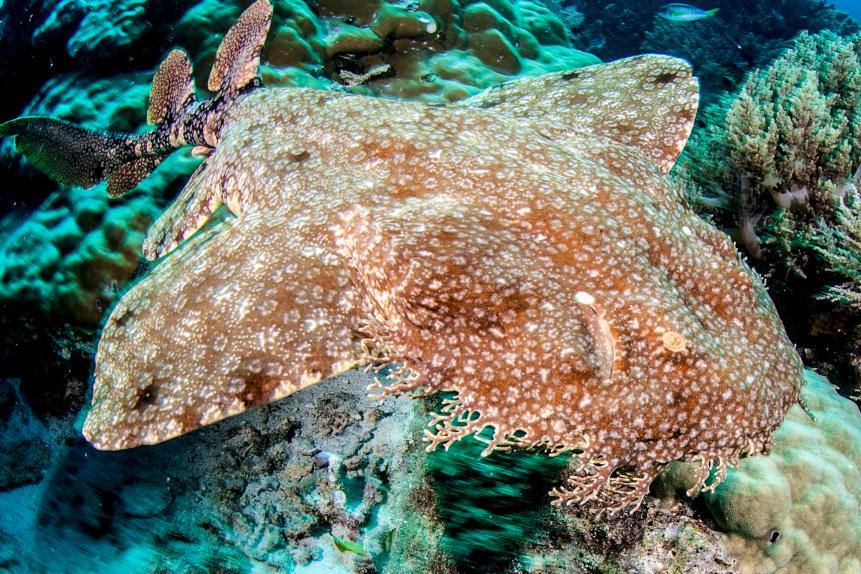
Giordano Cipriani
Wobbegong is the common name given to the 12 species of carpet sharks in the family Orectolobidae.
They’re well camouflaged too, having small whisker lobes that act as sensory barbs. The tasseled wobbegong is perhaps the most infamous of all the species, thanks to its intricate, elaborately branched lobes.
The sharks are found in shallow, tropical waters, primarily around Australia and Indonesia, although one species - the aptly named Japanese wobbegong - can be found in Japan’s waters. They’re bottom-dwelling sharks, spending most of their time on the seabed, with most growing up to 4.1ft. The Japanese species, however, can reach a huge 9.8ft. The head of a wobbegong is amazingly wider across than it is long, helping it consume whatever prey it can fit inside its mouth – and sometimes even prey that it can’t.
The sharks eat all sorts of fishes – and occasionally other sharks too. In 2011, two scientists photographed a wobbegong eating a bamboo shark…whole. “During the 30-min observation period,” the scientists observed in a paper they released the following year, “neither shark moved position and the wobbegong did not further ingest the bamboo shark. We assume that it would have taken at least several more hours for the wobbegong to completely consume the bamboo shark.”
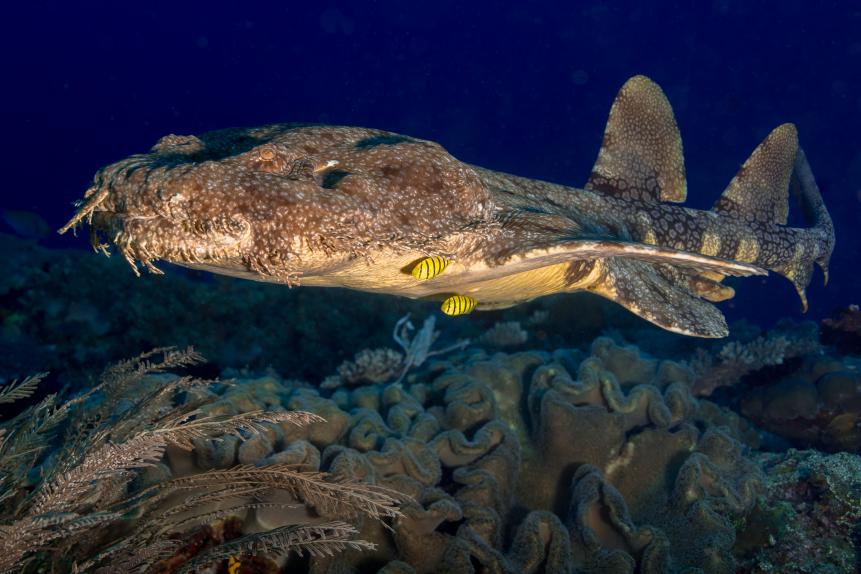
AHDesignConcepts
Wobbegong shark swimming with pilot fish.
The species’ ability to dislocate its jaw and sharp, rearward-pointing teeth mean wobbegongs can grasp prey that is relatively large compared to its body size, and swallow them whole. They’re mostly ambush predators, lying camouflaged in wait for smaller fish to swim too close. As far as sharks go, they are relatively lazy, staying stationary for hours at a time. In order to stay alive when they’re hanging out on the seafloor, they pump water over their gills using their cheek muscles in order to keep their blood oxygenated.
They’re not generally fished, but local populations have taken a hit in their numbers from accidental bycatch. Ocean scientists consider habitat loss of coral reefs to be more of a threat to the species, although current populations of the gulf wobbegong are thought to be largely stable – there are not enough data records to define any population trends for the other 11 species.
Although they are not considered dangerous to humans, there have been records of attacks on swimmers and scuba divers who have ventured too close to them, and although none have been fatal, they can be difficult to remove once they latch onto skin due to their teeth.









